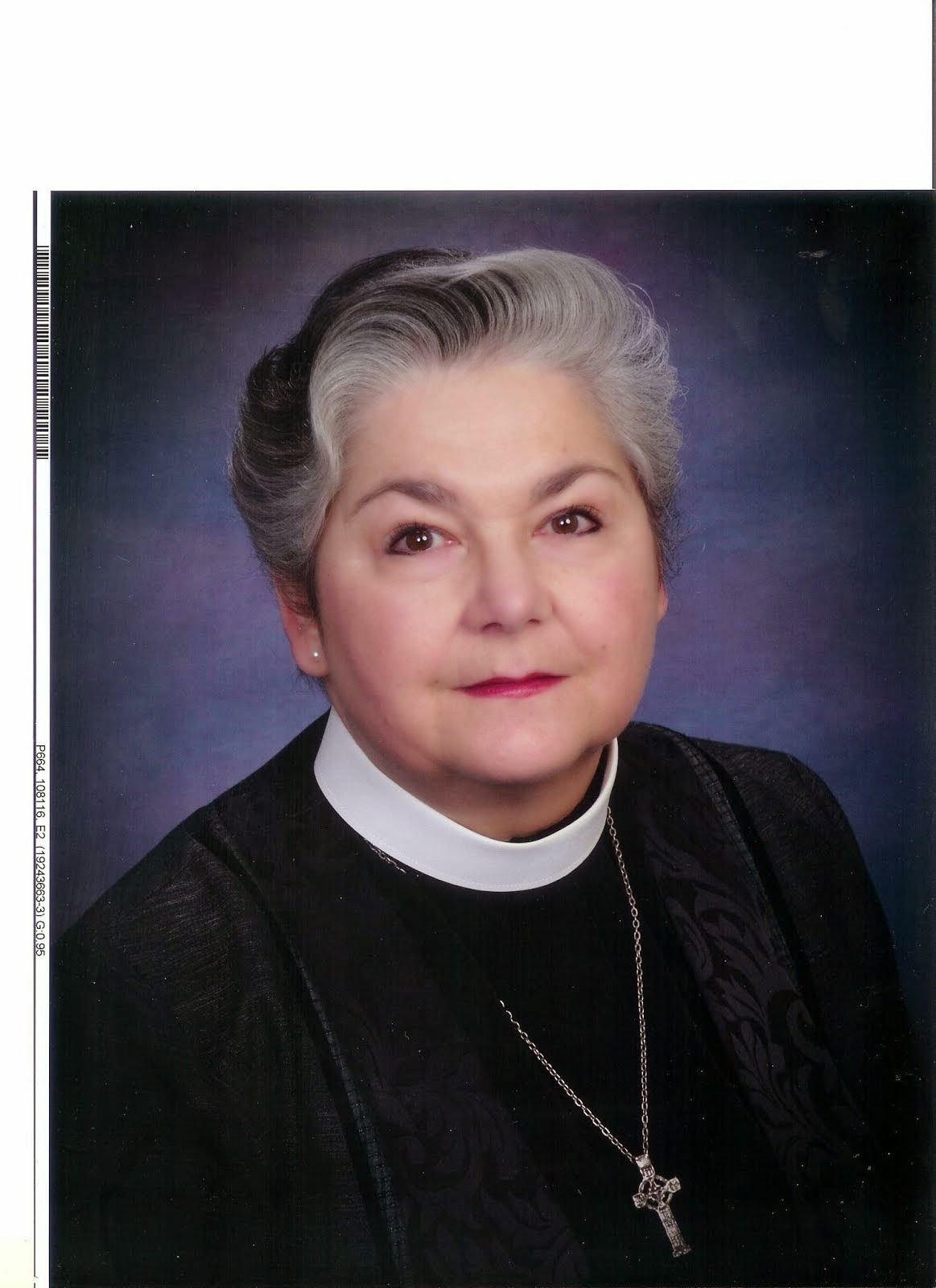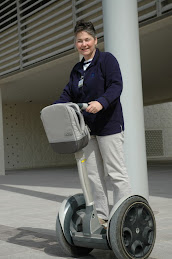A woman approaches you. A woman better ignored, who belongs to a group that considers itself your mortal enemy. A group that is committed to prevent you from entering into their country, for whatever purpose, be it political, military, and evangelical.
And you have come into her territory. Risky business, because you are not welcome here – that’s an understatement – but you are in trouble in your own home region, so you’ve come here, away from one threat and into the realm of another.
You are pretty surprised that she approaches you, but as she begins to speak, you realize why she is coming to you. Her daughter is sick. You noticed the child in an adjoining room when you came into this house. The child was acting very strangely indeed, perhaps some kind of psychosis, perhaps some kind of seizure disorder. A pretty child, but strange, and the others in the house are clearly staying away. Perhaps they think the child’s illness is contagious. The local chieftains have been unable to provide help. Her husband is gone, perhaps fighting in another part of the country. She knows you are the enemy, just as you know that her tribe sees you that way. Still, her desperation requires that she reach out to you. Her need for her child trumps her fear and loathing.
So she asks you, “Make her well.”
She crosses boundaries of gender, of ethnicity, of tribal conflict, to speak.
“Make her well.”
How does she know you have the power? What subtle vibration of your gifts, gifts which you’ve kept hidden in the aftermath of the last battle on your home turf, has she sensed?
But this is your time of hiding, of rest. One battle behind you, back in Capernaum, and she is asking you to do the sort of thing that will get you booted from this place.
The child is keening now, a high-pitched whine that grates on the nerves. Something is bothering her, some part of this disease that is a demon in her mind. Can’t the mother shut her up? This is not a good time.
“Make her well.”
She knows you can do it, heaven only knows how. But you dismiss her. You are not supposed to care for her, for her people, for your enemies, not just in this generation but almost all the way back to Father Abraham. “Let the children be fed first – the children of Israel, not you – it is not fair to take their food and toss it to the dogs, you dogs, you SyroPhoenicians.”
There. That should shut her up.
Any other woman would turn away in shame, spoken to in that way. Any other woman would burst into tears and scuttle off with the keening child tucked under her arm.
But this woman thrusts back in response to your cruel words: “Even the dogs get the crumbs from under the master’s table.” How dare she? This SyroPhoenician woman, this, this enemy, not one of us but an alien, and her whining little one nearby. She argues back! Is it sarcasm in her voice or desperation as she says “even the dogs get the crumbs from under the master’s table.”
You are shocked by her boldness – women, especially women like this, do not do such things, but you are equally shocked that you had not realized what you are supposed to do…the only thing you can do. You heal the daughter, driving out the demon of her illness. You say nothing more than that, no words of blessing to this passionate mother, no statement about her faith.
You simply do the work you were intended to do. You make her well.
Having done this act, so shocking and visible in this dangerous place, you must leave, so you go back toward your own country, but still are in enemy territory. But a man is brought to you as you travel through, a deaf-mute. Such people are evident throughout the world – they become beggars, of course, there is no other employment for them. But someone loves this poor deaf-mute and brings him to you. And there is such a hunger for healing in his eyes. Yes, the law says such persons are unclean – that is why they are usually sitting outside the bounds of the city, on the side of the road, begging – but he so wants to be healed. You take him aside – this odd act of healing breaks so many of the rules, it should be done out of public view. You put your fingers into his ears, and you feel the vibrations of the healing power that you get from the Father pulse through your fingers, through his ears, through his head. Whatever has been blocked and broken is now open, clear, responding to the clarity of those vibrations. But there is more to do, for he still cannot speak. So you spit on your fingers and touch the man’s tongue. Again, you have the sense of vibrations from your fingers to his tongue to his silent throat, first blocked, then resonant throughout his body. You cry out, almost involuntarily, “Ephaphtha! Be opened!” and the things that stopped, that blocked, that were broken, that were turned inward on themselves, unfold like the petals of a Rose of Sharon in the desert, full of health. The man looks up, shakes his head a bit with the unfamiliar sensations…he hears his family’s weeping, and he speaks “Abba!” But who knows whether the father to whom he calls is his own father, or the rabbi who has healed him or YHWH…You tell them all to keep this a secret, but it is impossible, of course, to keep such a secret. They are praising you with extravagant words, and you should be happy, but you know in your heart what is to come, and that it will be used against you.
But you cannot help it. It is what you were sent to do. You make them well.
+++
In the Epistle, James tells us this morning: “What good is it, my brothers and sisters, if you say you have faith but do not have works? Can faith save you? If a brother or sister is naked and lacks daily food, and one of you says to them, "Go in peace; keep warm and eat your fill," and yet you do not supply their bodily needs, what is the good of that? So faith by itself, if it has no works, is dead.”
Jesus taught, brilliantly, powerfully. But his work was not limited to words. He was, using James’ language from last week, a doer. He healed people because it was part of his mission. Sometimes, like today, it seems like he healed in spite of himself, when he wanted to just hide and be safe for a while. He couldn’t not do the work. He made them well.
And the really interesting part of the story of the two miracles we heard in the Gospel is that Jesus doesn’t heal his friends and folks with whom he is comfortable. He heals a woman who comes from the tribe of the enemies of Israel. He heals a deaf-mute, viewed as ritually unclean by the religious leaders of Israel. He crosses a line which was not to be crossed in his society, and of course, he pays for it.
That’s what James is talking about in his pastoral letter. He is writing to Jewish Christians in the first century, several decades after Jesus’ crucifixion and resurrection. He’s giving them practical pastoral advice. And the message is a surprising one to people who are oppressed, as Jewish Christians: do good deeds. And don’t just do them for each other, do them for the people who make you uncomfortable or even a little frightened, those who are even more oppressed by the demons of difference than you are.
I heard a story this week about doing rather than just talking that reminded me of the power of doing. I was visiting a homeless shelter for recovering addicts. Most of them are veterans, most of them are African-American, all of them are struggling to recover from their addiction and whatever other demons are in their bodies and minds. The shelter is not a beautiful place. There are pipes overhead, worn tile floors with holes underfoot, the smell of grease from the kitchen in the basement where the meals for these men are prepared daily. It is not a place that anyone here would want to call home, but for these men, it is a gift. But it’s a gift with some strings attached, as part of their recovery. The men are expected to get a job, or go to school, and to contribute to the cost of their housing. The cost is modest, and proportional to their income, but it is an important part of building the kind of life skills and habits that these men need, to eventually become successful away from a supportive housing environment. They sign a contract to make those payments, and they generally stick with it.
So it was a problem when one of the residents, George, was diagnosed with cancer and could not work the hours that he had before his illness. He couldn’t make rent. So his brothers in the facility kicked in some of their own meager earnings to cover his rent. $300, very little to many of us, a very large number to George, incapacitated now with the demon of serious illness in addition to the demons of addiction, of PTSD. But the other men did something toward casting out the demons by kicking in their cash, $10 here, $20 there. And in doing that, they began to cast out some of their own demons as well.
“Make us well.”
Jesus teaches us that we all have the capacity to help cast out demons. The starting point is love, and faith. Be brave and bold. Cast out the demons of despair, of injustice, of disease, of loneliness. Sometimes casting out demons takes prayer. Sometimes it takes medical treatment. Sometimes it takes cash. Sometimes it takes love. But we can do it, with God’s help and for God’s people. We need only look toward those who have less than us, who suffer more than us, and reach into our hearts and pull out some love to share, in whatever small way we can. The gift of this is that in doing so, we may begin to cast out our own demons.
“Make us well.”
Many voices are speaking those words. Are we willing to respond, in love and faith, to cast out the demons?
Amen.
Subscribe to:
Post Comments (Atom)







No comments:
Post a Comment